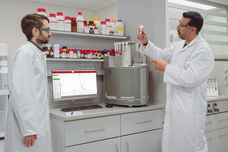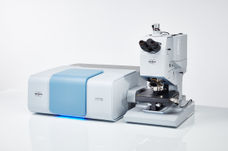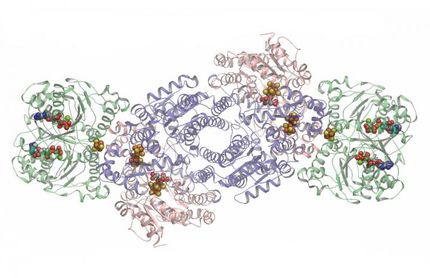Dow and University of Stuttgart Form Research Collaboration
The Dow Chemical Company and the University of Stuttgart have announced a long-range collaborative research program targeting the improvement of environmental profiles for some plastics, more sustainable industrial processes and new biocatalytic processes to produce pharmaceuticals. Contingent on annual results, Dow will provide more than $1 million to fund the 3-year program.
The research will be conducted by two institutes in the University of Stuttgart Center for Bioprocess Engineering. Professor Rolf Schmid (Institute of Technical Biochemistry) and Professor Matthias Reuss (Institute of Biochemical Engineering) will lead the effort. Prof.. Wiltrud Treffenfeldt, Dow R&D Leader for Industrial Biotechnology in Europe, will manage Dow's participation in the cooperative program.
Under the agreement, initial work will focus on industrial bioprocesses. Specifically, researchers will seek new ways to create biodegradable polymers, monomers and chemicals through new techniques in biocatalysis.
The Center for Bioprocess Engineering combines a variety of skills in bioprocess development, such as biocatalysis, computer modeling, rational and evolutionary protein design, bioprocess engineering, product recovery, and miniplant technology for process verification.
"The University of Stuttgart is one of the leading centers in Germany for research on bio-based industrial processes. This is Dow's first agreement with a German University in this research arena, and we are delighted to be working with this outstanding resource," said Dr. Mani Subramanian, Dow Global Research and Development Director for Biotechnology and founder of the project. "Biotechnology has a strong potential for future use in many areas of the chemical industry and will offer new alternatives for sustainable production technologies of existing and new products."
"We are proud that a major American-based global corporation has chosen the Stuttgart Center for this research alliance," said Schmid. "This is a most encouraging sign that American companies are starting to discover the potential of German universities for work in applied research and development." added Reuss.
The University of Stuttgart is one of the leading technical universities in Germany, with 140 institutes in 14 departments. One-third of the University's annual budget of 513 million DM originates from outside funds brought in through grants and contracts with governmental and other agencies. Its main campus in Stuttgart Vaihingen is also host to other research establishments such as Max-Planck-Institutes, Fraunhofer Institutes, the German Center for Aviation and Space Research and a wide range of collaborative research centers. For more information, visit www.uni-stuttgart.de.
Most read news
These products might interest you

Eclipse by Wyatt Technology
FFF-MALS system for separation and characterization of macromolecules and nanoparticles
The latest and most innovative FFF system designed for highest usability, robustness and data quality

Spinsolve Benchtop NMR by Magritek
Spinsolve Benchtop NMR
Spinsolve is a revolutionary multinuclear NMR spectrometer that provides the best performance

HYPERION II by Bruker
FT-IR and IR laser imaging (QCL) microscope for research and development
Analyze macroscopic samples with microscopic resolution (5 µm) in seconds

Get the chemical industry in your inbox
By submitting this form you agree that LUMITOS AG will send you the newsletter(s) selected above by email. Your data will not be passed on to third parties. Your data will be stored and processed in accordance with our data protection regulations. LUMITOS may contact you by email for the purpose of advertising or market and opinion surveys. You can revoke your consent at any time without giving reasons to LUMITOS AG, Ernst-Augustin-Str. 2, 12489 Berlin, Germany or by e-mail at revoke@lumitos.com with effect for the future. In addition, each email contains a link to unsubscribe from the corresponding newsletter.








































